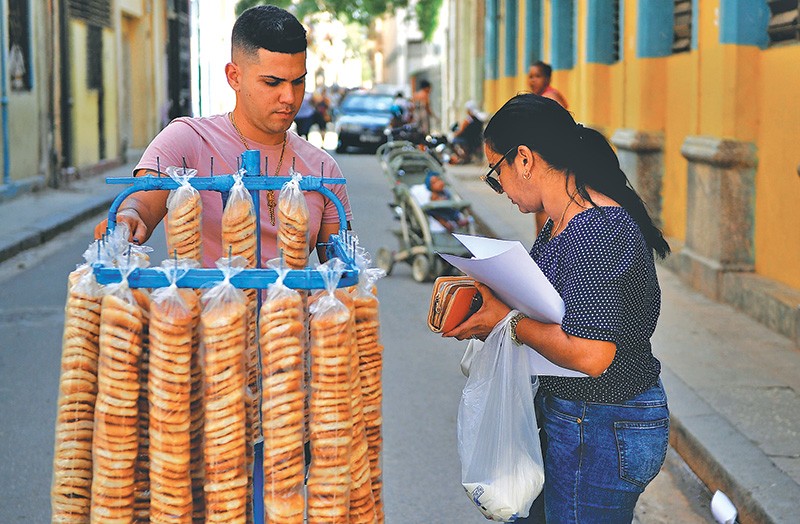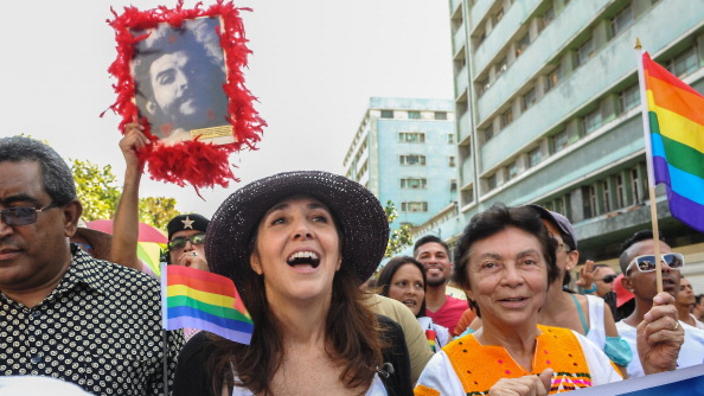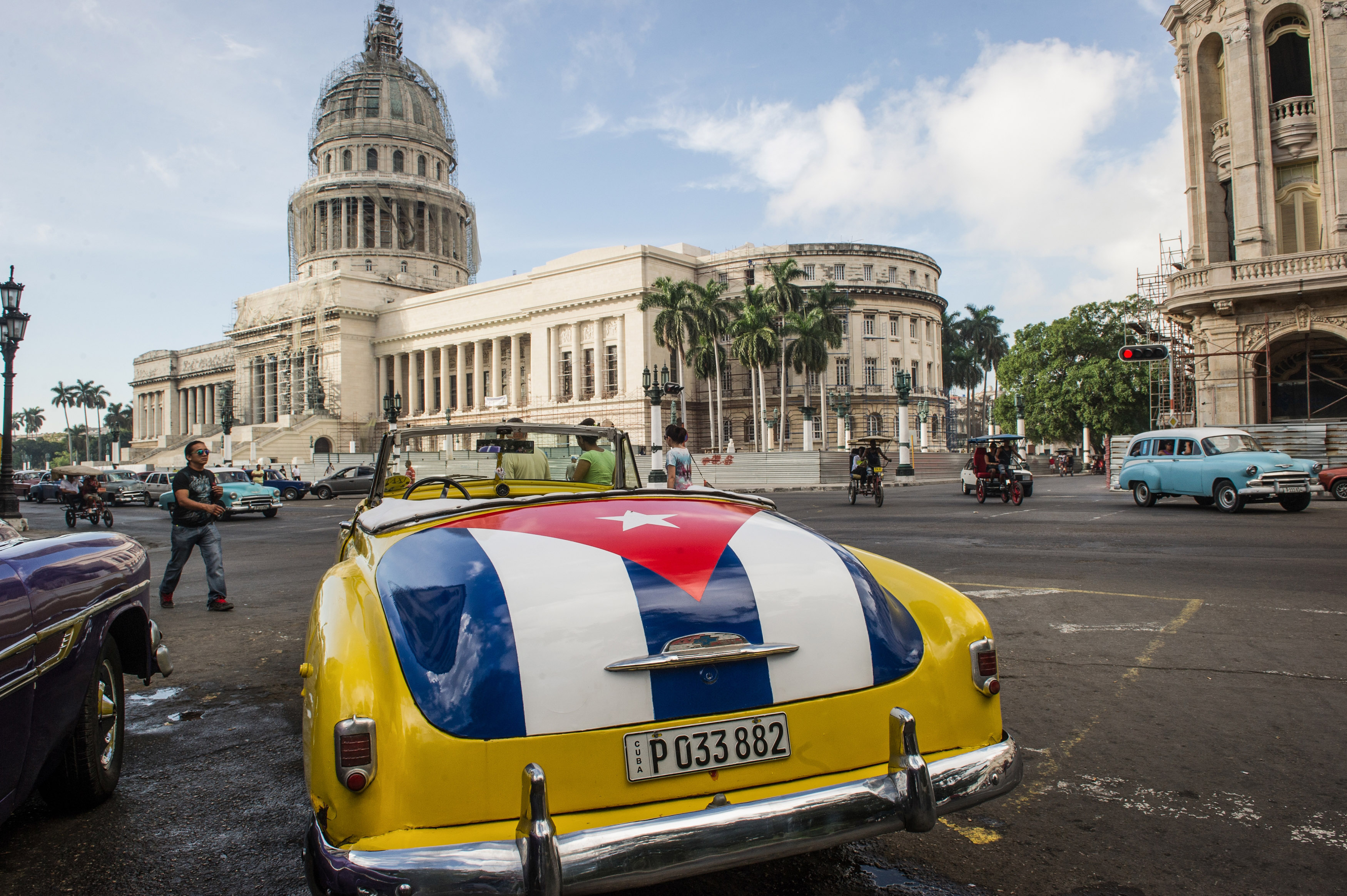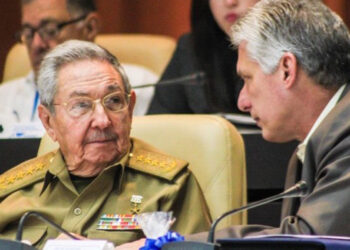On August 13, the birthday of former leader Fidel Castro, Cubans began discussing substantial reforms to the 1976 Constitution. Whether the chosen day was a stroke of political serendipity is not certain. What is certain, however, is that the probing into the constitutional reforms has wetted Cuban’s appetite for expanding and deepening the structural changes introduced in 2010 to bring the country afloat and – as a friend told me – “to save the revolution.”
Cuba’s 1976 Constitution was inspired by the Soviet Union. It was reformed in 1992 and 2002. In contrast to those reforms, the current one eliminates article 5 that states that the “progress towards a communist society” was at the heart of Cuba’s political journey. The word “communism” has been erased, but the draft reform does ratify the “socialist character of the Cuban Revolution” and “the leading role of the Party.”
Cubans have proposed major changes to the structure of the state and the government’s base. The aims seem to be the decentralization of the decision processes. This is undoubtedly welcome news to ordinary Cubans fed up with the country’s stifling bureaucracy.
Economic Liberalization
Closely linked to this is a reform that endorses “proper mechanisms” for the defense of individuals before the courts of justice – mechanisms designed to safeguard the rights of ordinary Cuban who might be aggravated by the “undue action or omission in their functions by State bodies, their directors, officials, and employees.” This is a constitutional crack to eradicate the well-documented abuses of power frequently suffered by Cubans under the hands of the bureaucracy – called by Fidel Castro “a clandestine enemy.”
Since the gentle economic liberalization, Cubans have begun unlocking their private entrepreneurial spirit, resulting in the “cuentapropistas” that have mushroomed on the island since 2010. These Cubans will be delighted that the constitutional reform recognizes “the role of the market and new forms of non-state property, including private.”

There is a caveat however to this reform – the government decided to restrict commercial licenses to one per person. And there is a solid and understandable reason. La Havana is wary the reforms might have been too radical and sudden and might contribute to the rise of an unequal society. These restrictions – and here the Cuban government has shown a great deal of wisdom – are aimed to preserve the spirit of egalitarianism that has characterized the revolution.
Balance of Power
A balance of power is essential to good governance; hence the creation of the office of prime minister will also please the nation. Currently, the president is head of the Council of State and Ministers. Not any longer. The president will be head of state, and the prime minister will direct the Council of Ministers. After the long years of mono-personal leadership first in the hands of Fidel Castro, and until 2016 by Raul Castro, this is a positive development. It creates, as the official Communist Party newspaper Granma stated, a “balance of power between different sectors of the regime.”
The persistent attempt of Latin American leaders to overstay in power, for example in Bolivia, Venezuela, and Nicaragua, is one of the many maladies of the region’s political system. It is also a cause of considerable popular discontent. It is this popular discontent the new reforms to the constitution aims to quench, by establishing a much-needed limitation of presidential terms.
Personal Freedoms
One of the fundamental principles underpinning the proposed constitutional reforms is to maintain the social achievements of the Cuban revolution. Former leader Raul Castro’s idea of creating a “prosperous and sustainable socialism” underpins these changes. This is a hugely important safety net for a country that in good and bad times is an equitable society.
Access to education and health are the cornerstones of Cuban society. The constitutional reforms sanction the access and the gratuitousness of health services, as well as the education system, from preschool to university. This will be achieved as long as Cuba maintains a 13 percent investment of its gross domestic product (GDP) in the area of education and the current 10.3 percent of its GDP on health.
In the 60s and 70s, Fidel Castro enshrined atheism in the constitution, and in 1992, Cuba declared itself a secular society. This has not stopped the increasing religiosity of Cubans. The 2015 visit of Pope Francis, highly popular among Cubans, reinvigorated Catholicism. In the last two years, the island has also seen rising popularity of Pentecostalism, a renewal movement within Protestant Christianity.
It is in this context that the new reforms to the Constitution have maintained and strengthened Cuban’s “rights related to beliefs.” Cubans have the right, the constitution establishes, to adopt and practice any religion of his or her preference “with due respect to other creeds and in accordance with the law.”
Raul Castro’s daughter Mariela Castro, whose father handed over power to the current President Miguel Diaz-Canel in 2017, has been a staunch supporter of one of the most highly sought after demands in Cuba: the rights of gays, lesbians, and transgenders.
She is the director of Cuba’s National Centre for Sex Education and member of the National Assembly. From that position, she was behind the groundbreaking proposal to move away from the 1976 Constitution that established that marriage was exclusively the union between man and woman. The reform opens the door to gay marriage and calls to respect Cubans’ sexual orientation.

One of the areas that reforms to the constitution is not addressing, and this is regrettable, is the recognition of rights and freedoms, among them the right for unions to strike and protest. Nothing of this is recognized in Cuba. Opponents inside and outside of the island have been demanding this for a very long time. It is unquestionably one of the government’s pending and urgent tasks.
Necessary Changes
These days, Cubans do not talk about anything else but the reforms. The discussions are formally held and curated in educational centers, workplaces, and neighborhoods throughout the country.
Inclined to colorful and often politically incorrect aphorisms, Cubans have described the 1976 Constitution as an “old lady with blusher” that needs to be changed. “These changes are necessary,” a Cuban friend from Guantanamo told me over the phone. “I see people reading, studying, thinking; making proposals, and that is very good.”
It is fair to say that – at least on paper – the new reforms to the Cuban Constitution have brought about a new engagement of Cubans with their political institutions and have brought a spark – paraphrasing Italian poet Dante Alighieri – that might become a mighty transformation ordinary Cubans are seeking.
Disclaimer: The views and opinions expressed here are those of the author and do not necessarily reflect the editorial position of The Globe Post.


















